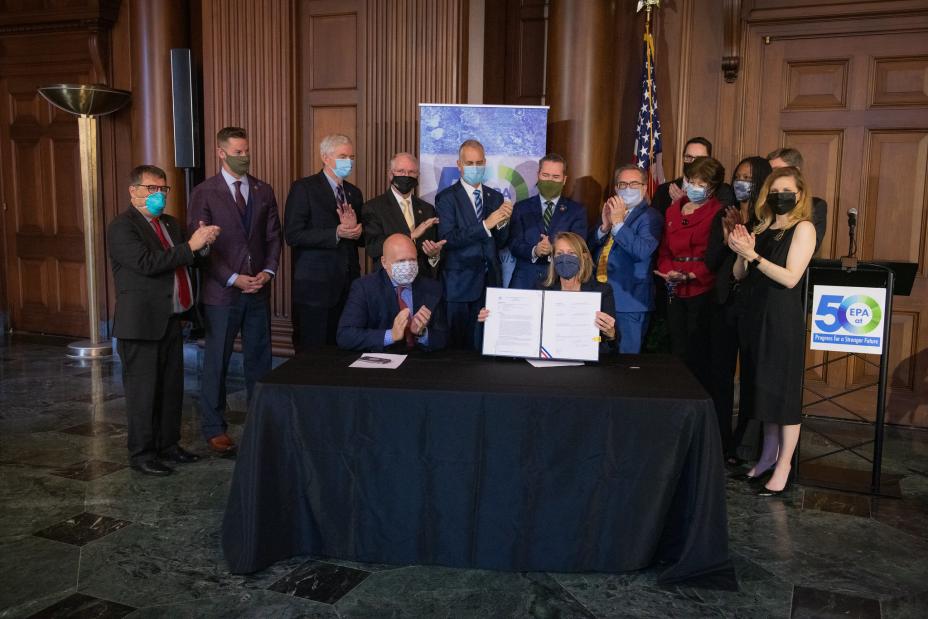Have a story idea
Have a story idea? Send it to us here.

Source : EPA
December 25, 2020
Author : Amy Chan
It was an early Christmas present for Florida contractors when the Trump administration’s Environmental Protection Agency (EPA) decided last week to grant the state of Florida permitting authority in the Florida wetlands. Environmentalists, meanwhile, are calling EPA Administrator Andrew Wheeler a grinch.
Here’s how it happened: Florida applied for the implementation of a Clean Water Act (CWA) Section 404 program. This effectively allows Florida to handle permits on a wide range of water-related projects, and transfer this authority from the U.S. Army Corp of Engineers.
Florida is the first state in more than 25 years to receive approval for the program, and only the third state ever following Michigan and New Jersey. Florida appealed to the EPA back in August, so it only took a few months for the EPA to come to its conclusion.
“A considerable amount of effort has gone into Florida’s assumption of the Clean Water Act 404 program,” EPA Administrator Andrew Wheeler said in a press release.
He continued: “Federal authorities don’t delegate this type of permit often, but Florida has, beyond question one of the greatest environmental records of any state, and I couldn’t be happier that Florida has shown it can meet the strict national standards EPA sets to protect human health and the environment.”
“After a rigorous review, analysis and coordination process, EPA is pleased that the state of Florida will assume responsibility of its Clean Water Act Section 404 program,” said Mary S. Walker, EPA Administrator for region four, which covers Florida, Alabama, Georgia, Kentucky, Mississippi, North Carolina, South Carolina, Tennessee and six Tribes. “This approval is truly a reflection of the high-level scientific and regulatory expertise of the environmental professionals at the state, federal and tribal levels who ensured a legally and technically sound program. This monumental milestone will allow Florida to administer this program to best fit enhanced protection of its natural resources.”
Florida Senator Rick Scott (R), also weighed in, saying “The duplicative rules on the state and federal levels were a waste of taxpayer dollars, and created confusion for everyone involved, which is why I fought to streamline this process.”
According to the EPA, “Section 404 of the CWA requires a permit before dredged or fill material may be discharged into waters.” The question is whether that permit comes from the federal or local government.
The agency continues: “An efficient state- or tribal-run program can help reduce delays and save money for permit applicants. States and tribes can also integrate dredged and fill permitting with traditional water quality programs, such as monitoring and water quality standards, or state/tribal land use planning requirements. Under an assumed program, Section 404 permit applicants may need only a single state or tribal permit for dredged or fill material discharges. Since more than a dozen states and tribes currently administer dredged and fill programs separate from the federal program, assuming the Section 404 program allows states and tribes to streamline the review process and reduce unnecessary paperwork and duplication. It may also reduce the potential for conflict between federal and state or tribal decisions or permitting conditions.”
While not everybody is happy with the move, citing environmental concerns. However, “state and tribal Section 404 programs must be at least as stringent as federal permitting,” according to the EPA.
The move will likely be popular with contractors involved in dredging and filling activities as it will reduce regulatory headaches, helping to streamline the permitting process.
Category : Tribally Designated Entity Contractor Trades Federal Government State Government
